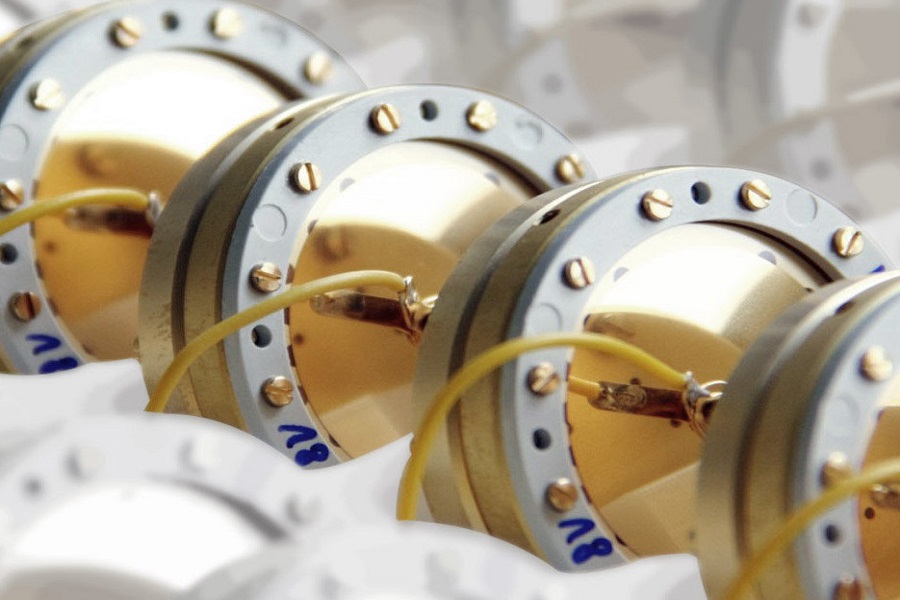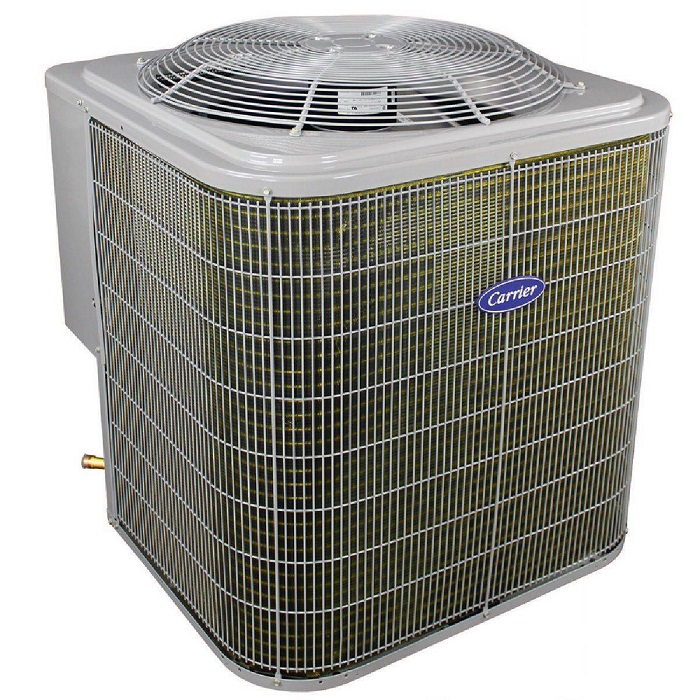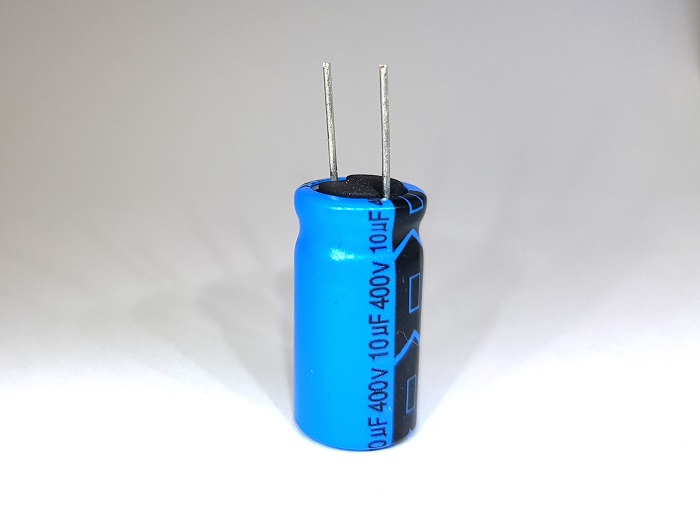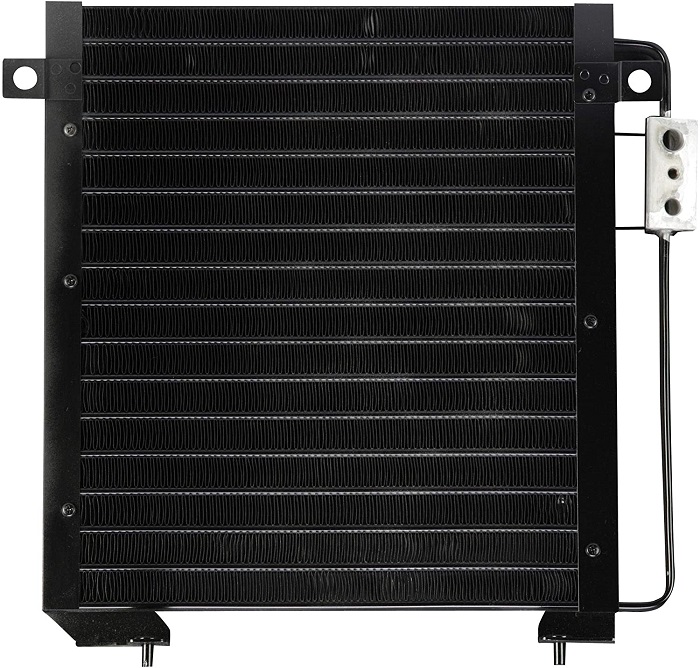Condensers and capacitors are two of the most useful equipment that can be seen in a wide range of devices and products. While they have similarities, they also have distinctive features that divide them into separate groups. Capacitors are passive electronic elements with the ability to store electrical charges. A condenser refers to a device that can transform a substance from its vapor state to a fluid state.
We want to make sure you can make informed decisions by providing as much information on the Linquip website as possible about industrial equipment and tools. Linquip is the best platform to contact if you have any questions about capacitors and condensers or their associated equipment. Any questions you may have about these devices can be answered by Linquip’s experts at any time. Read Linquip’s articles titled “What Is a Capacitor?” and “What Is a Condenser?” to gain a basic understanding of the concept.
Linquip consists of several components, so signing up as a Linquip Expert is the first step toward using them effectively. By creating an account with Linquip, you will be able to display your skills as they relate to industrial equipment in a way that is tailored specifically to the needs of the industry. Can you contribute to the Linquip website as a guest poster if you are interested in doing so? You can publish your content directly to the Linquip platform with the Guest Posting option.
Even if you’re not working in the industrial business, you probably have these devices in your own home. So learning about them can have tremendous benefits if you’re working in the industry. To learn the difference between the two we’ll have to dig deeper, study each device, and compare them. So we recommend not to miss out on a word and read this article thoroughly, as we unfold the difference between Condenser and Capacitor and guide you to ask more questions from Linquip.
Main Difference Between Condenser and Capacitor
The difference between Condensers and capacitors can be studied in various fields. Even though they have similarities, they can be quite different when it comes to their application and meaning.
Condenser and Capacitor meaning
The electrical system has three “passive” elements, which include the coil, the resistor, and the Capacitor. In general, capacitors are systems that consist of two conducting bodies, and the space between them can be filled with a dielectric or air. On the whole, no major difference can be seen between the terms condenser and capacitor. The condenser can be regarded as a deserted word that refers to the same apparatus. But if the condenser is introduced as an individual concept, its applications are specific and unique.
Usage and application
Condensers and capacitors can have many different applications. From industrial companies to our houses, they can be seen everywhere. Capacitors are used for filtering, rectifying, energy storage, signal processing as the motor starts, etc. Condensers are used in refrigerators, air conditioning, and optics.
What is a Capacitor?
To understand the difference between Condenser and Capacitor, first, we must get to know the capacitor. A capacitor is a system that consists of two or more conductive parts such as foils, metalized foils, and plates. These parts are divided by a dielectric that can accumulate electricity. An exemplary electrostatic storage instrument has two metal plates, which are parallel and these plates are parted by a dielectric, which is an electric isolator. The dielectric determines the capacitance of the capacitor. The size of the needed capacitor and the required capacitance define the capacitance. The capacity of the capacitor is the unit that describes the capacitor. This unit defines how much the capacitor in question has charge Q at a given voltage U on its metal plates.
The operating voltage of every capacitor is its capacitance and its other traits. The capacitance of the capacitor becomes higher, as the dielectric constant among the plates becomes greater, the distance becomes less, and the active surface of the plates becomes bigger. The capacitors get connected in a pack, to have a higher capacitance of higher active voltage. The connection between the capacitors can be in series, parallel, or a mixture of both. If multiple capacitors are connected, they’re named capacitors battery.
In general, capacitors are separated into the following groups, based on their usage and fashion of production:
- Electrostatic
- Electrolytic
- electrochemical
What is a Condenser?
Capacitors were used to be called Condensers. As time went on, this term died out and since 1926 the capacitor has been used more commonly. This might seem to limit the difference between Condenser and Capacitor, however, they can still be quite different! If they’re studied through an electrical lens, capacitors, and condensers are the same things. In any other aspect, condensers may suggest being many different things. In a mechanical view, consolidating vapor to water refers to a condenser. The condenser may also note an optical system that takes the beams from a light source and concentrates it into a narrow beam.
Condensers work as heat capacitors, so they store energy in the electrostatic field. On the contrary, capacitors store energy in the electric field. More commonly a condenser refers to an apparatus that transforms a gaseous substance to its fluid state. Every condenser fulfills the process of removing the heat from the gas with the help of a cooling system. Condensers can be seen in various systems, such as air conditioning systems, thermal power plants, distilleries, and so forth.
Difference Between Condenser and Capacitor Summary
So let’s recap the difference between Condenser and Capacitor to make sure you haven’t forgotten anything:
- While the condenser is an old term, the capacitor is much newer. The capacitor has been used as a term instead of a condenser for ages.
- In 1926 the scientific term “Capacitor” was replaced with the term “condenser”. Since then the term condenser can be heard rarely.
- The energy that’s stored in a condenser is shaped into an electrostatic field that streams between the condenser’s poles. On the other hand, the energy that’s stored in a capacitor is turned into an electric field that moves between the capacitor’s plates.
- In any area of study, the definition, system, and mechanism process of the capacitor remain uniform, whereas the structure and mechanism process of a condenser can vary in different subjects of study, to the extent that sometimes the condenser can be an entirely different apparatus.
- Capacitors are used in signal coupling, decoupling, computer memory applications, filtering, motor starting, and many other devices. Condenser examples can vary from a device that concentrates beams of light narrower to a device that removes the heat from vapor and converts it into a fluid state.
Download Condenser vs Capacitor PDF
By clicking on the following link, you will be able to download a PDF file that contains the entire contents of this article.
In this article, you’ve studied the condenser, and the capacitor, and their differences. But your quest to learn industrial knowledge doesn’t end here. If you wish to grow and prosper your business and career we suggest learning as much as you can. So make sure to read our other articles as well. Do you have any other questions about the difference between Condenser and Capacitor? Simply register at Linquip and have all your questions and doubts answered.
Buy Equipment or Ask for a Service
By using Linquip RFQ Service, you can expect to receive quotations from various suppliers across multiple industries and regions.
Click Here to Request a Quotation From Suppliers and Service Providers
Read More In Linquip
- What is a Non-Polarized Capacitor? Types & Function
- Difference between Capacitor and Inductor- Capacitor vs. Inductor
- What is a Paper Capacitor?
- What is Paper Capacitor Used for?
- What is Mica Capacitor Used for?
- What is an Electrolytic Capacitor? Usage & Application
- What is Film Capacitor & What is it used for?
- What is Capacitor and How Does it Work?
- 7 Types of Capacitors and Their Uses
- What is Ceramic Capacitor Used for?
- What are Mica Capacitors? Comprehensive Overview
- What is an Electrolytic Capacitor?
- What is Film Capacitor? Different Types & Working
- What is Ceramic Capacitor? A Basic Description
- Types of Capacitors: All You Need to Know
- Difference Between Heat Exchanger and Condenser
- Difference Between Condenser and Evaporator






